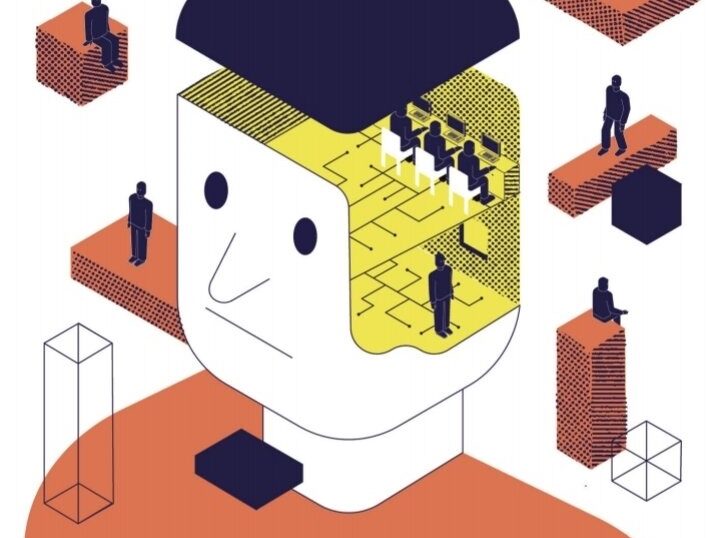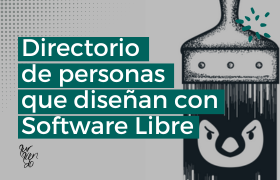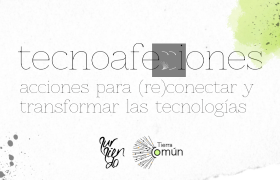Authoritarianism and surveillance: in the face of technological dystopia, we walk toward social utopia

Published in Digital violence in Mexico: The State vs. civil society
by Alexandra Argüelles (coordinator) & Brenda Battaglia (illustrator)
Ed. Malpaís editions and Comun.al (October, 2021. Mexico)
ABSTRACT
We present some reflections on surveillance and authoritarianism when we talk about the digital environment, but we want to do it not only showing its abusive side but also how to imagine other forms: dystopias and utopias, as experiences, dangers, challenges and dreams. We know that today much of our activities go through digital devices and networks, and we also know that every step we take can be monitored. There are political interests and economic interests for it to be done. There are also social experiences of technology uses that revolutionized their contexts, their narratives, their practices.
0. INTRO
«Don’t wait to be hunted to hide…»
Samuel Beckett (Marcuse, 1965)
Imagine that young people come together to protest in some state in southern Mexico because they’ve been denied access to their university entrance exams. Imagine that they are monitored by drones in the sky and facial recognition cameras on the street, their mobile devices are tracked and their social media accounts and phone numbers are then blocked. Imagine that, after silencing them, they are tracked down, arrested, tortured and raped, all without any repercussions, drowned out by the constant flow of information enveloping us. Imagine that, after all this happens to the students, something similar happens to militant teachers, peasants, dissident healthcare workers, feminist protestors, those who criticize the decisions of politicians on Twitter or Facebook.
This seems to be taken from some futuristic narrative, but there is a real possibility that it can happen. And similar things are already happening. The technological capacities and, in some cases, the political will already exist to make this happen, seriously undermining basic democratic rights such as the freedom of expression, the right to assembly and protest, to critique and, definitively, the right to privacy, to work, to education, to knowledge, to a dignified life.
At Sursiendo, we have been engaging in digital care work with social organizations and collectives in Mexico’s south and southeast for several years now and we find ourselves coming across an increasing number of such digital incidents. Understanding the context of global surveillance and the uses of digital technology allows us to improve our praxis and internal education, while our local work allows us to understand the magnitude of the problem and the challenges we face. We see it as a bridge we must cross in both directions in order to reinforce our practice of supporting activists and human rights defenders.
Over the course of history, technology has been and is used for human development, but also to attack populations and their rights. Most of the time, this depends on political decisions, not technical ones—that is, technical decisions that are made for the use of technologies depend on political conceptions, ways of conceiving social environments.
One classic example of the perverse use of technology can be found in Nazi Germany. When Hitler took power in 1933, Joseph Goebbels’s Ministry of Propaganda controlled all means of communication in the country, including newspapers, magazines, books, music, film and radio. From that moment on, dissenting voices were censored and the use of technology for propaganda purposes became the norm. The case of radio is particularly interesting: as the most popular source of information at the time, it offered all the possibilities of being a weapon of mass propaganda. Slogans, criminalization, verbal violence and intimidation were regularly heard on the airwaves. In case these broadcasts didn’t reach everyone, Goebbels promoted the “people’s radio” (Volksempfänger), a simple and affordable device whose low sensitivity prevented it from picking up transmissions from abroad. At the end of the 1930s, Germany thus became the European country with the most radios, which could be found in 70% of households.
And people didn’t just listen to the radio at home, as hundreds of speakers were installed in public places in order to transmit official programming. These speakers multiplied during rallies and political events, when speeches were accompanied by deafening military or symphonic music and theatrical lighting. Film, whose popularity was on the rise at the time, was also used for Nazi propaganda.
This is a paradigmatic case that is widely studied in communication studies departments, but there are others that are more contemporary.
Former U.S. president Donald Trump used Twitter to spread fake news and stoke polarization, while Facebook has fed the fake news phenomenon and unethically influenced the election of Trump himself; there’s also Jair Bolsonaro in Brazil, Brexit and many other documented cases.
As Goebbels himself said, “If you tell a lie big enough and keep repeating it, people will eventually come to believe it.” Nowadays, governments, political parties, corporations and other powerful organizations have the mechanisms (in the form of networks and algorithms) to make this lie reach each group or individual in a personalized fashion. And they repeat it over and over.
This personalized digital technology is also used to locate us, profile us, listen in on us and watch over us. In Mexico, several years ago we were shocked to learn that the General Prosecutor of the Republic (PGR) and the Federal Police had departments in every state in the country dedicated to monitoring social media and tracking activists, journalists, organizations and social movements. It no longer shocks us.
Over the years, through leaks and independent reports, we have learned that there is surveillance of critical voices, activists and researchers in Mexico and other countries in the region. That’s not even mentioning the possibility of surveillance and social control over widespread sectors of the population, as can be seen in the recent attempt to approve a Registry of Personal and Biometric Data for all people with a telephone line, which threatens our basic rights.
Technological tools greatly depend on the ways in which they are used, but even still, it must be said that technologies are not neutral, but are either consciously or unconsciously created with characteristics that can generate certain types of political, social and economic behavior. As the researcher Lila Pagola has said, “Technologies are neither innocent nor neutral. They form a whole with an economic and political program that promotes some of their aspects and makes others invisible.” This depends on who designs, programs, promotes, purchases and uses them.




